
In 2024, five of our AI products enabled others to reduce 26 million tCO2e1— roughly equivalent to the emissions from the annual energy use of over 3.5 million U.S. homes.2
Getting around
Transportation accounts for 20% of global carbon emissions.3 No matter where you’re going or how you’re getting there, products like Google Maps aim to make each journey more optimized.

Google Maps
Fuel-efficient routing
Fuel-efficient routing uses AI to suggest routes that have fewer hills, less traffic, and constant speeds with a similar ETA. See the relative fuel or energy savings between the two routes and choose the one that works best for you.
EV charging
Find EV charging stations, including the number of available docks and fast charge options.
Transit & cycling options
Google Maps provides bus, train, subway, and ferry directions, along with walking directions, bike routes, and nearby bike and scooter shares.

Google Travel
Emissions estimates for flights
See carbon emissions estimates for nearly every flight on Google Flights, allowing you to make more sustainable travel choices.
Eco-certified hotels
Eco-certified badges signify that a hotel has been certified by an independent accredited organization as meeting high sustainability standards. You can learn more about their efforts on Google's Hotel Search.
Train route suggestions
In Google Search, find long-distance train routes, schedules, and ticket prices, along with links to complete your booking. You’ll also find train route suggestions when looking for flights on Search.

Google Maps

Google Travel
Saving at home
How you heat and cool your home, and where your power comes from, are impactful opportunities to save energy and money.

Solar savings estimates
When searching for “solar power” on Google, you can enter your address to get a free, AI-powered estimate of your home’s potential solar savings, based on satellite imagery.
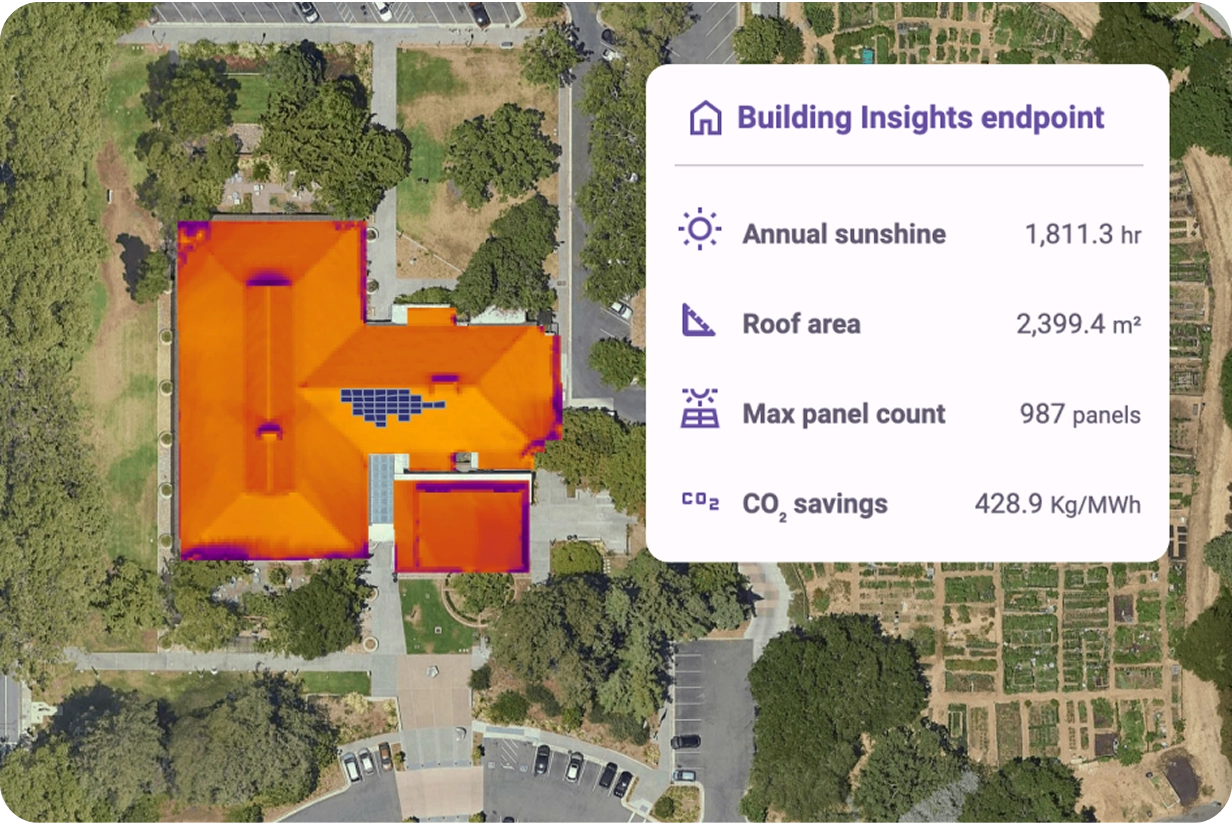

Smart thermostats for every household
Nest Learning Thermostats create an optimized schedule based on your home routine, saving you, on average, 12% on heating bills and 15% on cooling bills. We estimate our Nest thermostats helped customers cumulatively save more than 162 billion kWh of energy from 2011 to 2024,4 which is more than the total annual electricity consumption of Poland in 2023.5


Heating & cooling comparisons
In certain countries, searches like “boilers” or “heat pumps” show useful information including capabilities, energy efficiency, and financial incentives.
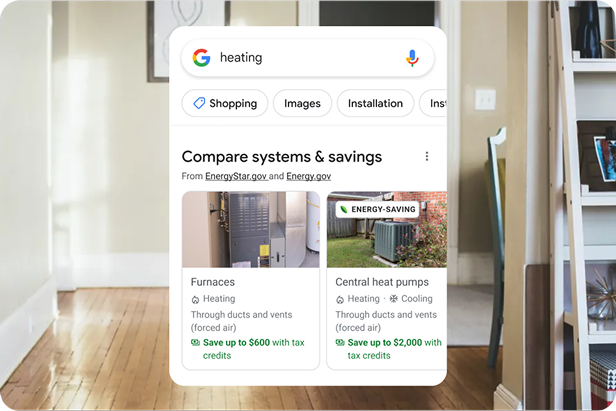
Shopping smart
Find ways to reduce waste and save money when buying clothing, cars, and more.
Shop pre-owned
When looking for products like clothing or electronics, the “pre-owned” badge indicates results for unique and affordable previously-owned options.


Electric vehicle information
Searches like “best electric cars” show easy-to-understand comparisons of prices, battery ranges, fuel costs between models, and in some regions, financial
incentives—making it easier to shop for an electric vehicle.
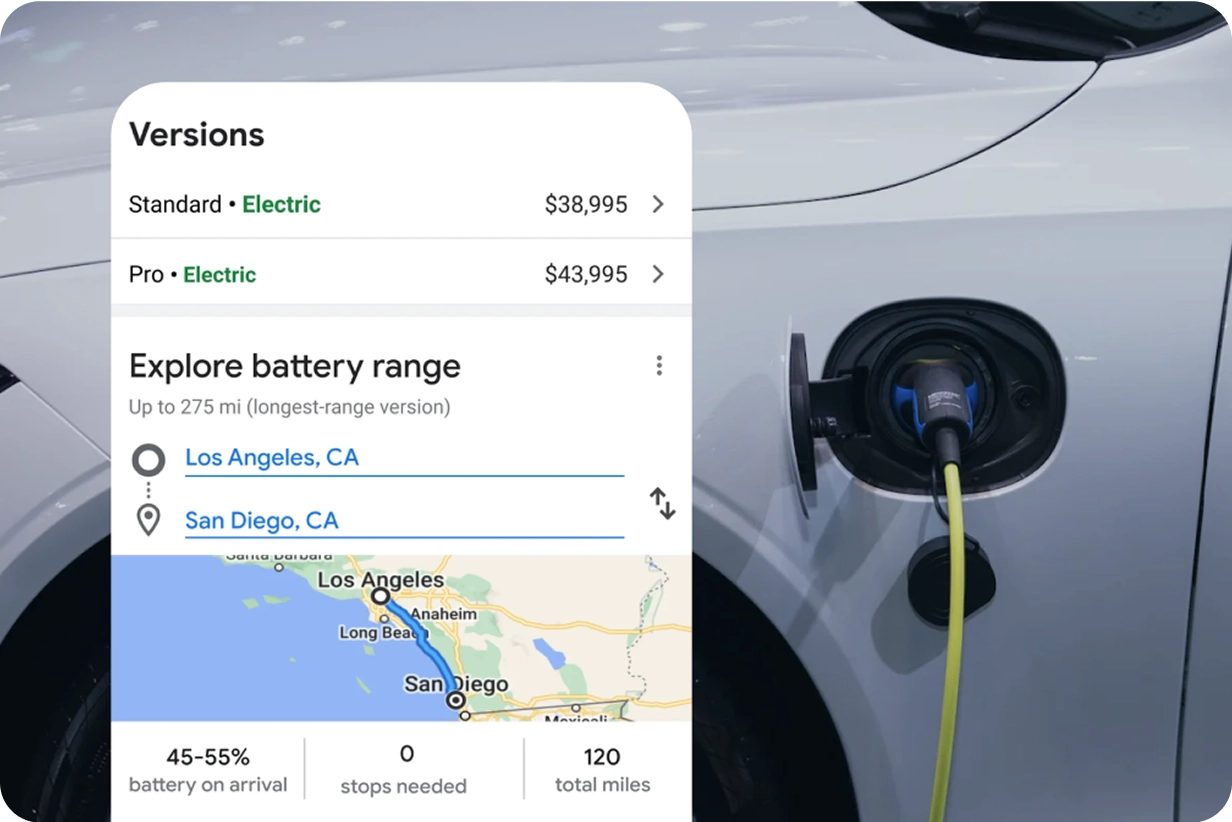

Recycling made easy
Use Google Search to find local storefronts and shops with recycling services—from glass bottles, to clothing, to electronics.

Prepping for extreme weather
With our AI-powered forecasting tools you can better plan for and respond to threats like wildfires, extreme heat, and floods.
Wildfire boundaries
Through Google Search and Maps, you can see wildfire boundary information updated every 20 minutes or less.
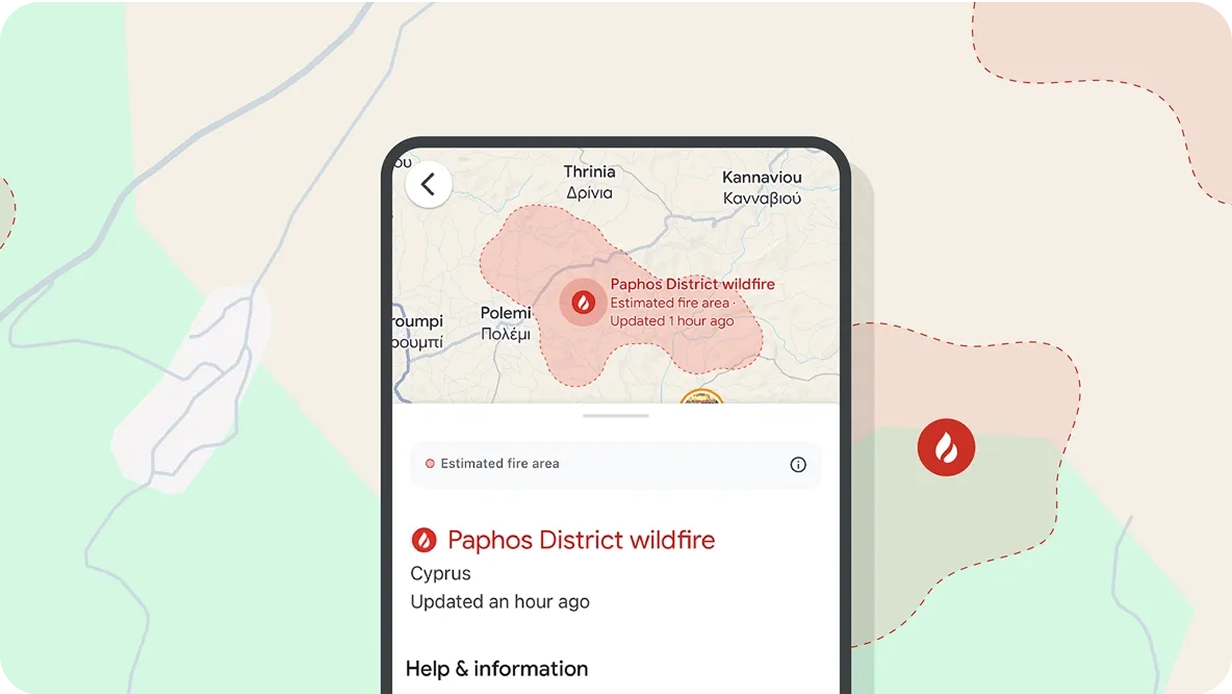
Extreme heat alerts
When searching for weather info, see details about when a heat wave is predicted to start and end, tips for staying cool, and related health concerns to be aware of.
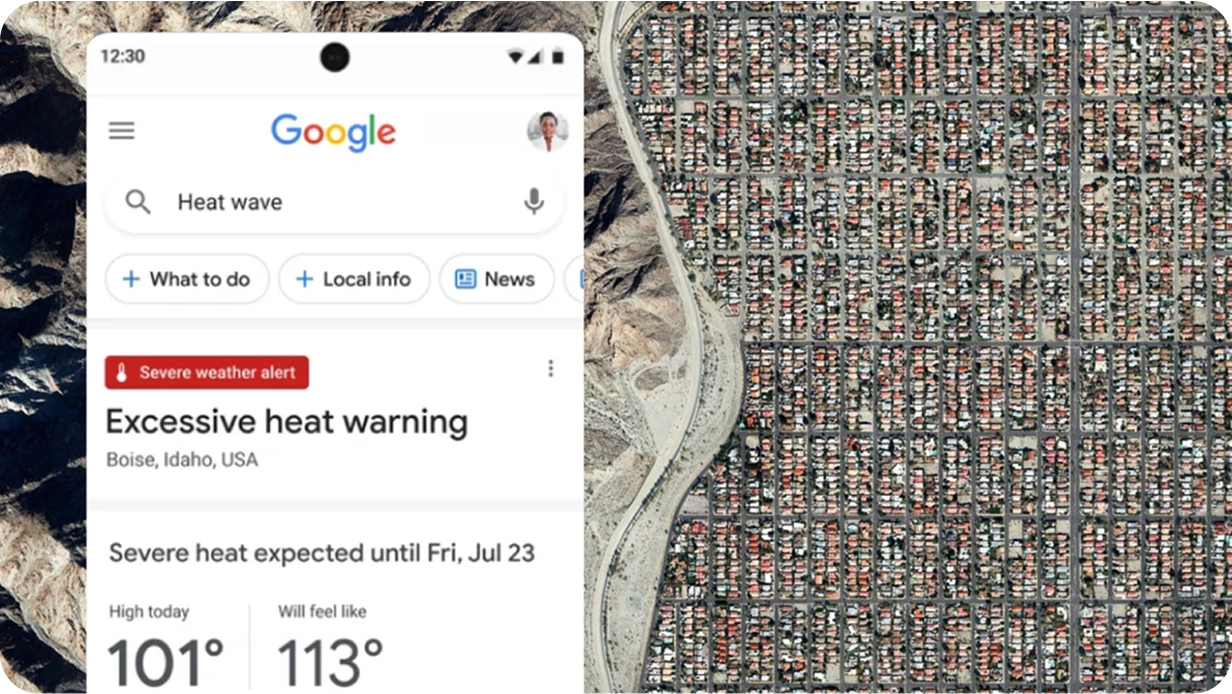
Flood forecasting
To keep you prepared and safe, we use daily updated meteorological data and AI to forecast severe floods, sending alerts up to seven days beforehand.



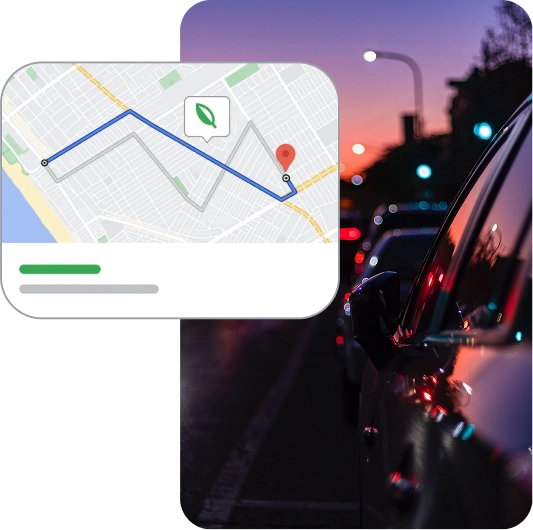

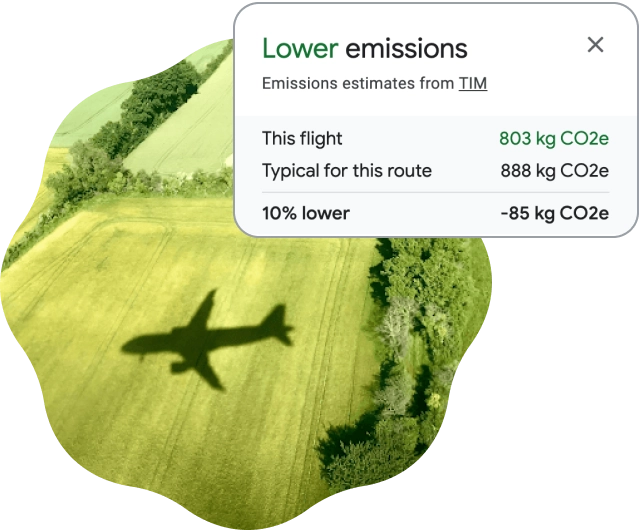
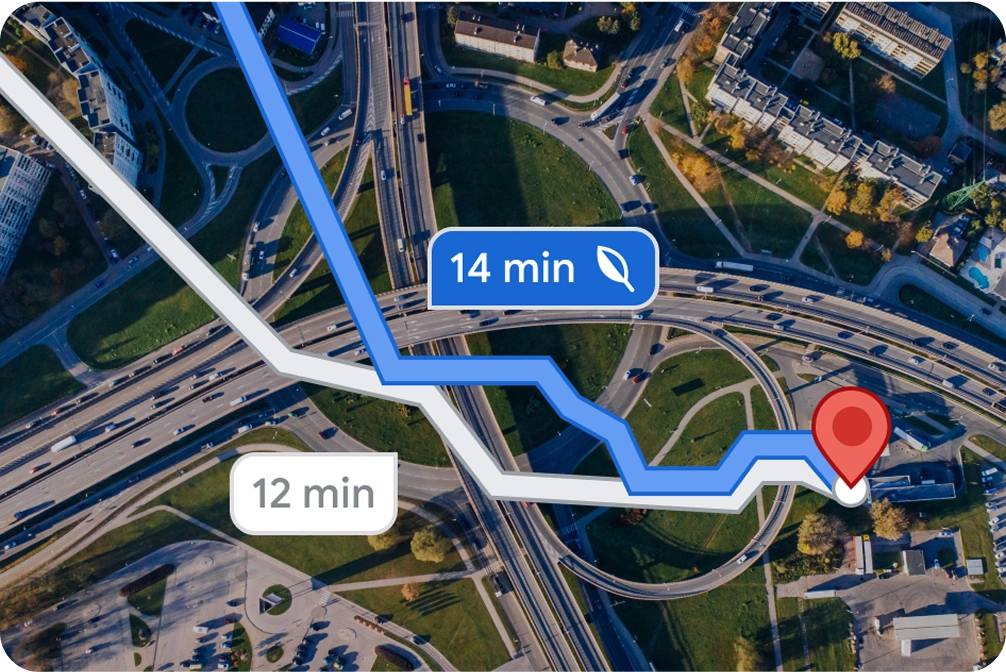
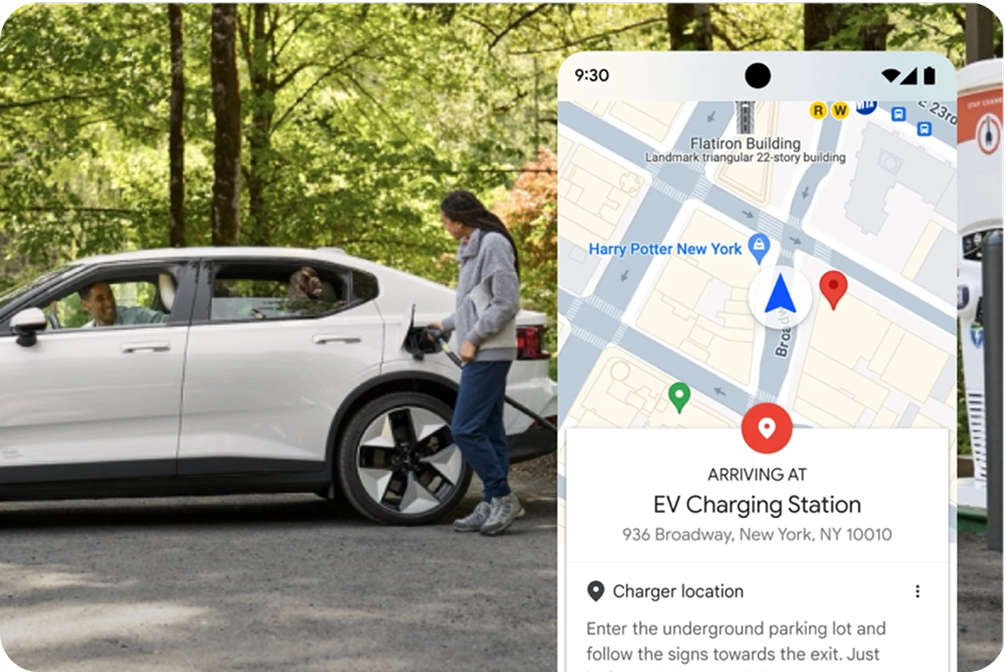

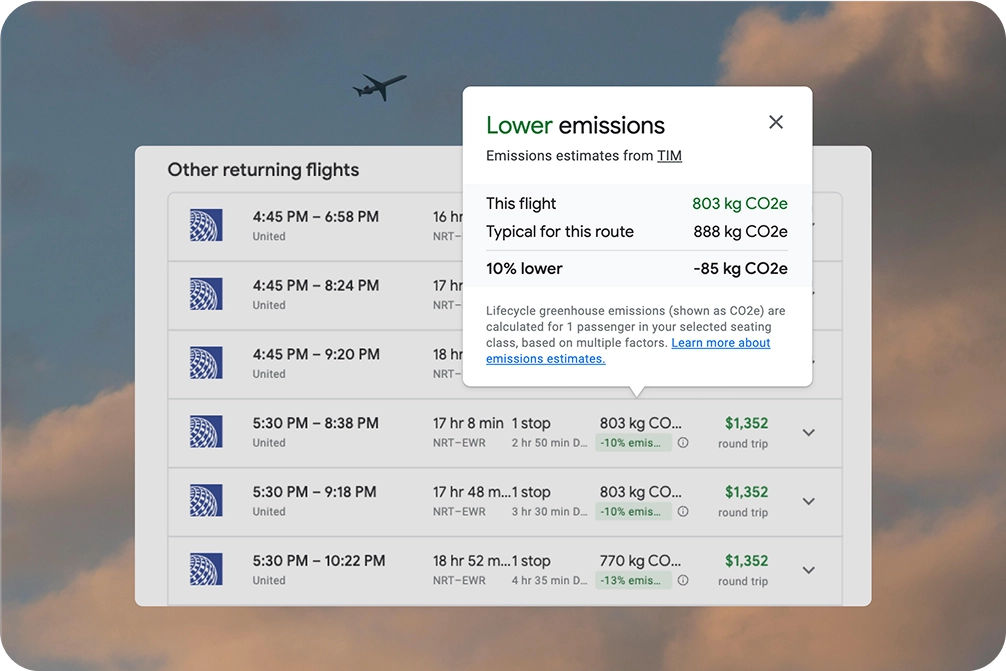


![[Empowering_individual_revamp]_image1.webp](https://www.gstatic.com/marketing-cms/assets/images/b4/36/b32c28434d60acb5698da0ef4aef/2025-environmental-report.webp)
![[Empowering_individual_revamp]_image2.webp](https://www.gstatic.com/marketing-cms/assets/images/1a/06/a2e094aa46cea13370d7afb9c95b/googles-enabled-emissions.webp)
![[Empowering_individual_revamp]_image3.webp](https://www.gstatic.com/marketing-cms/assets/images/67/76/54de7b7e4e6299ca21ecea4fe4d7/procard3.png)
![[Empowering_individual_revamp]_image1.webp](https://www.gstatic.com/marketing-cms/assets/images/20/b9/6f48b8114095983b07546475fc4e/procard4.png)
